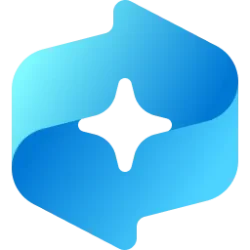This tutorial will show you how to free up drive space with Disk Cleanup in Windows 11.
You can use Disk Cleanup on a regular basis to reduce the number of unnecessary files on your drives, which can free up drive space and help your PC run better. It can delete temporary files and system files, empty the Recycle Bin, and remove a variety of other items that you might no longer need.
Reference:
Free up drive space in Windows - Microsoft Support
Learn how you can free up drive space in Windows. Keep your PC running smoothly and up to date by increasing the disk space.
If you delete Previous Windows installation(s), you will no longer be able to go back to the previous version of Windows.
Contents
- Option One: Use Cleanup Recommendations on C Drive in Settings
- Option Two: Cleanup Temporary Files on Specific Drive in Settings
- Option Three: Use Disk Cleanup on Specific Drive from File Explorer Command Bar
- Option Four: Use Disk Cleanup on Specific Drive with cleanmgr.exe app
1 Open Settings (Win+I).
2 Click/tap on System on the left side, and click/tap on Storage on the right side. (see screenshot below)
3 Click/tap on Cleanup recommendations. (see screenshot below)
It may take a moment to finish looking for items to clean.
System files will only be available to clean up if you are signed in as an administrator.
4 Under each section, you can check items you want to delete, and click/tap on the Clean up or Remove files button to remove them, and click/tap on Continue to confirm. (see screenshots below)
You can click/tap on the See advanced options link under Temporary files to remove specific types of unneeded temporary files.
- Temporary files can include previous Windows installation(s), system error memory dump files, Delivery Optimization files, Windows upgrade log files, thumbnails, temporary files, Microsoft Defender Antivirus non critical files, DirextX Shader cache, temporary internet files, and Windows error reports and feedback diagnostics.
- Large unused files are non-system large files you have never opened or not used in a long time.
- Files synced to the cloud are files and folders synced to OneDrive with a local copy on your drive. Removing those files from your computer does not remove them from the cloud (OneDrive).
- Unused apps are apps you have never used or haven't used in a long time.
1 Open Settings (Win+I).
2 Click/tap on System on the left side, and click/tap on Storage on the right side. (see screenshot below)
3 Click/tap on Advanced storage settings to expand it open, and click/tap on Storage used on other drives. (see screenshot below)
4 Click/tap on the drive you want to cleanup temporary files from. (see screenshot below)
5 Click/tap on Temporary files. (see screenshot below)
6 Check the temporary files you want to delete, uncheck the temporary files you do not want to delete, and click/tap on the Remove files button when finished. (see screenshots below)
7 Click/tap on Continue to confirm. (see screenshot below)
8 When finished, you can close Settings if you like.
1 Open This PC in File Explorer (Win+E).
2 Perform the following actions: (see screenshot below)
- Select a drive you want to cleanup.
- Click/tap on the See more (3 dots) button on the command bar.
- Click/tap on Cleanup.
3 Continue at step 3 in Option Four.
Cleanmgr.exe will only delete Temporary files older than 7 days last accessed by default. Option One does not have this limitation.
1 Open Disk Cleanup (cleanmgr.exe).
2 If you have more than one drive on your PC, select the drive you want to clean, and click/tap on OK. (see screenshot below)
3 Do step 4 (your files) or step 5 (system files) below for which files you want to clean.
4 Clean Up Your Files on Drive
A) Check the items you want to delete. (see screenshot below)
B) Uncheck the items you do not want to delete.
C) When ready, click/tap on OK, and go to step 6.
5 Clean Up System Files on Drive
You must be signed in as an administrator to use this option.
A) Click/tap on the Clean up system files button. (see screenshot below)
B) If you have more than one drive on your PC, select the drive you want to clean, and click/tap on OK. (see screenshot below)
C) Check the items you want to delete. (see screenshot below)
D) Uncheck the items you do not want to delete.
E) When ready, click/tap on OK, and go to step 6.
6 Click/tap on Delete Files to confirm. (see screenshot below)
7 Disk Cleanup will now delete the selected items, and close when finished. (see screenshot below)
That's it,
Shawn Brink
Last edited:











